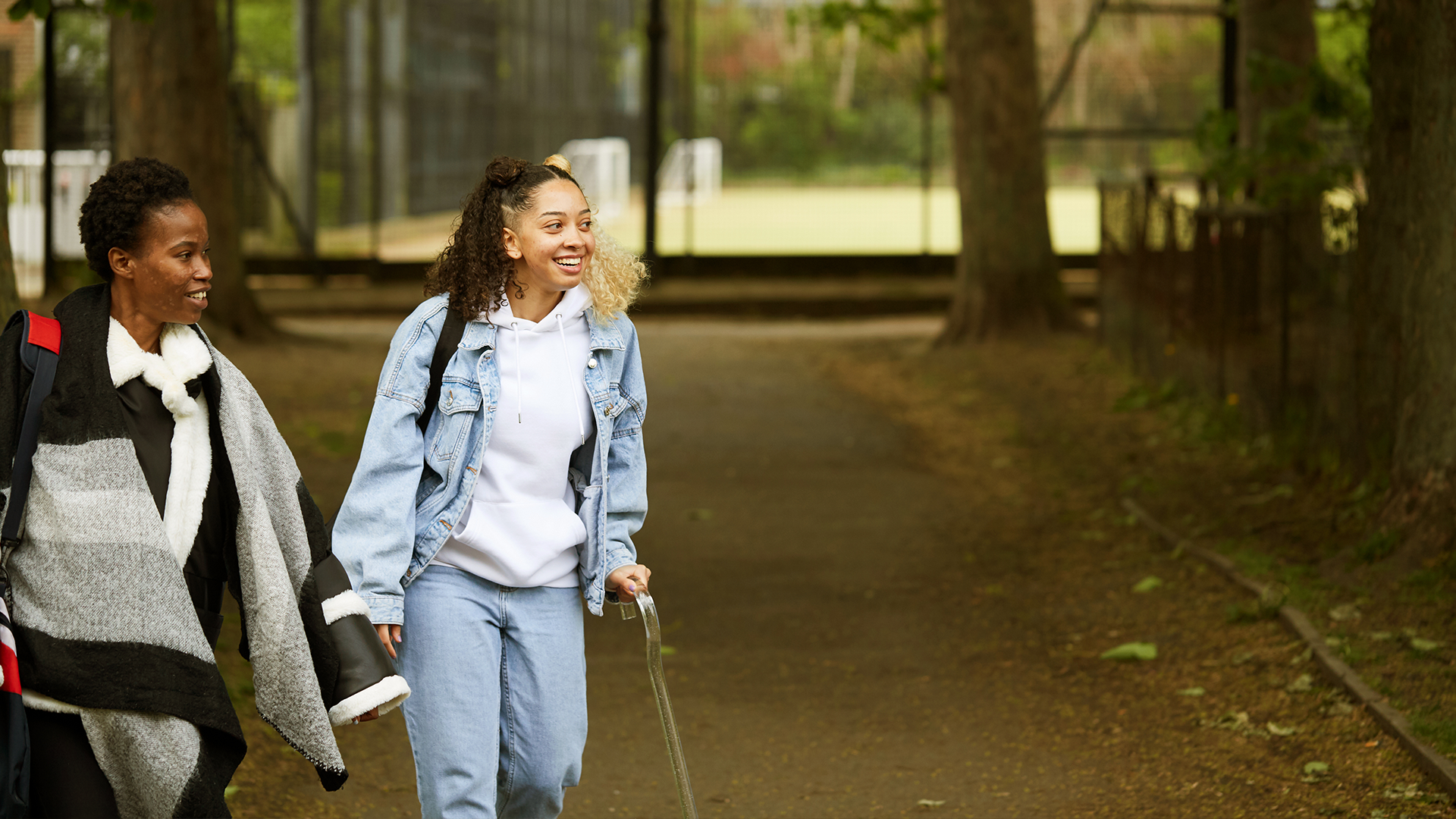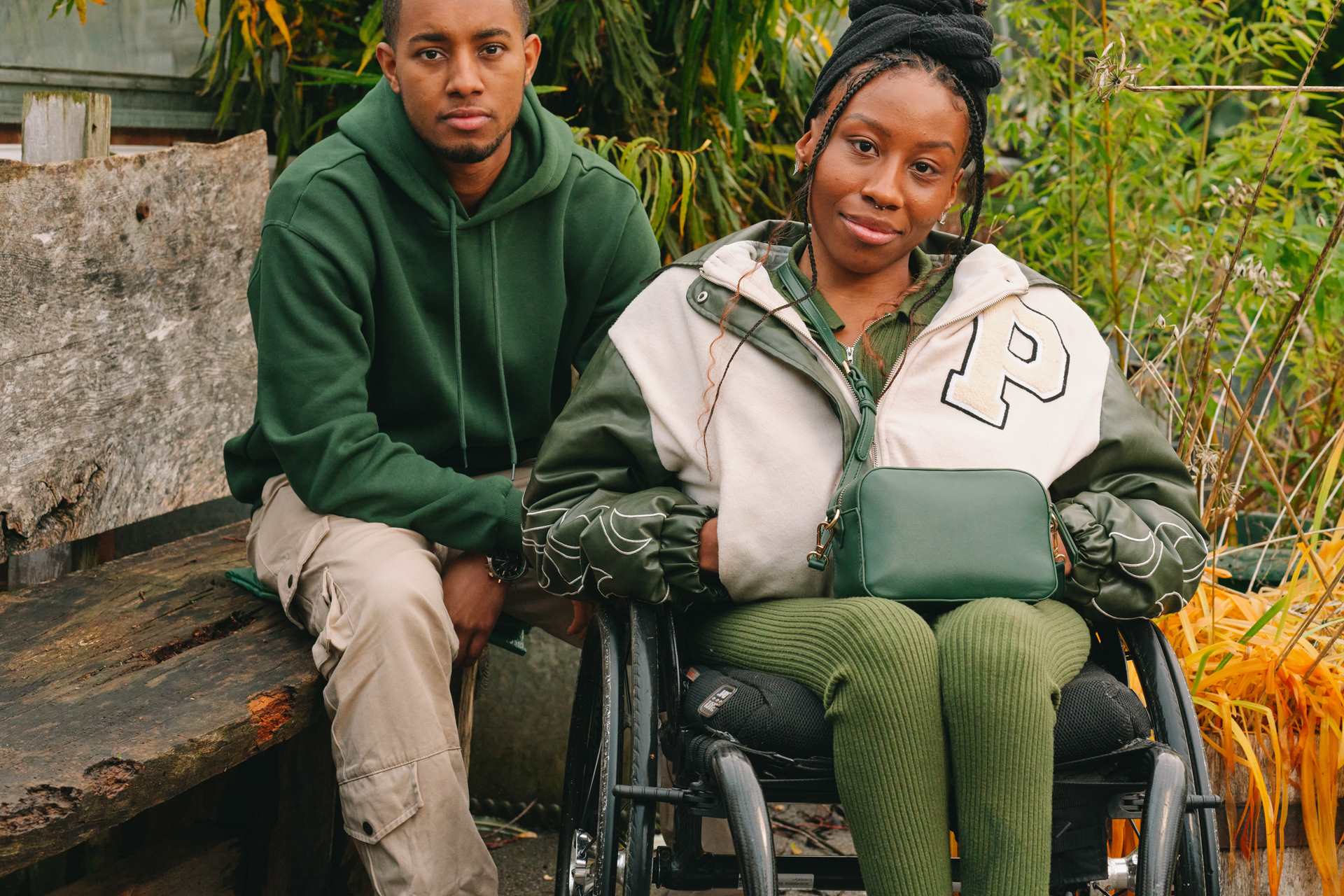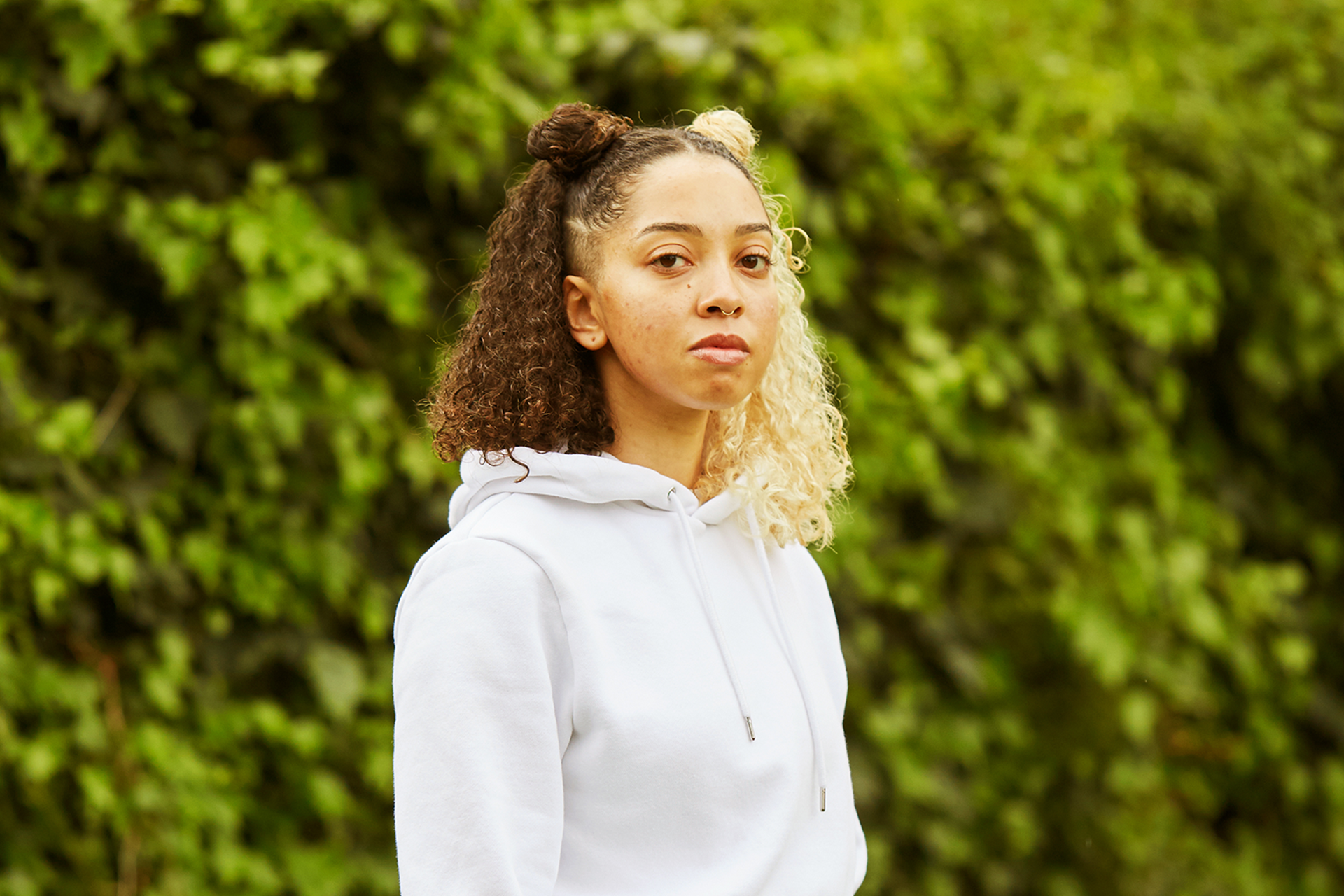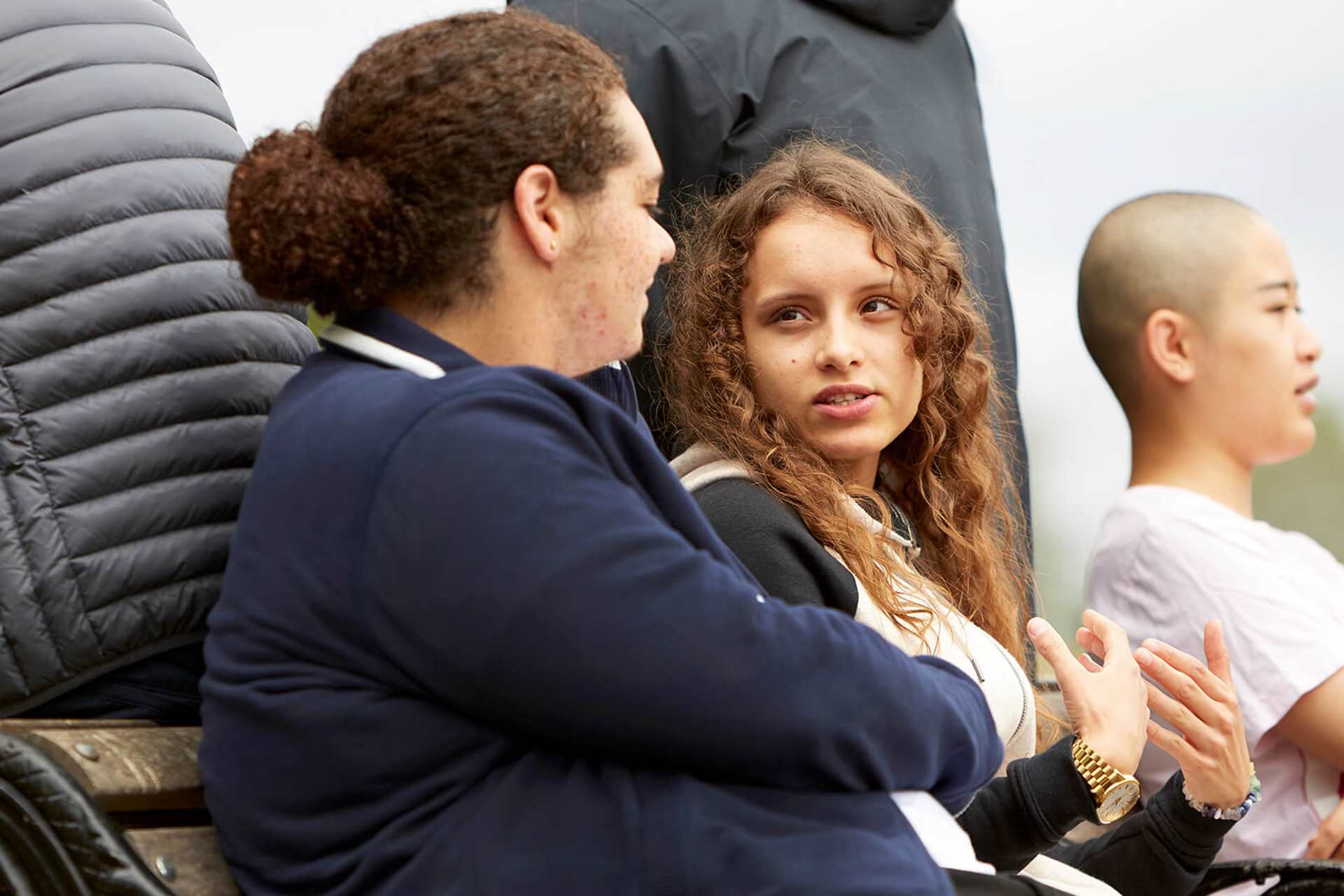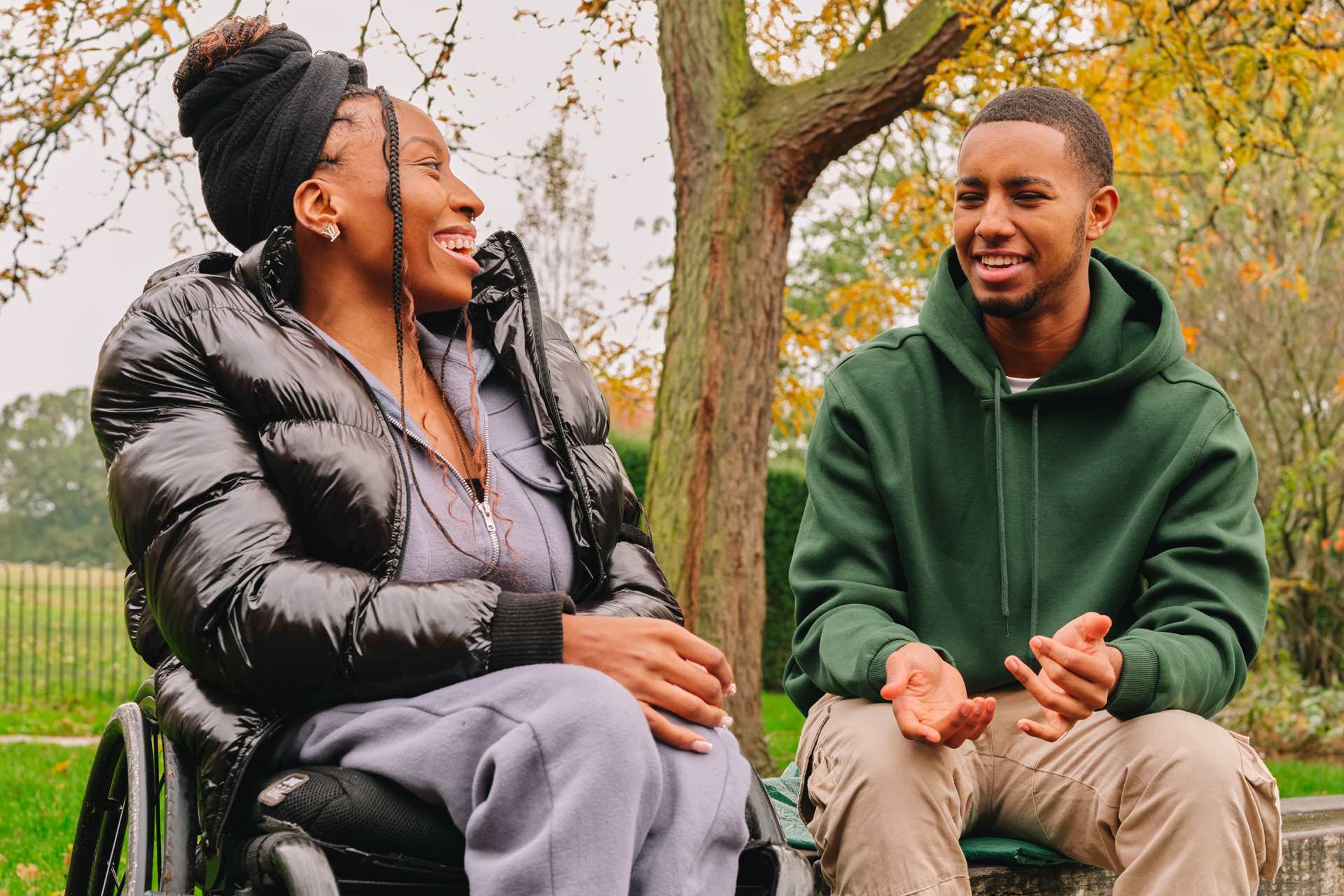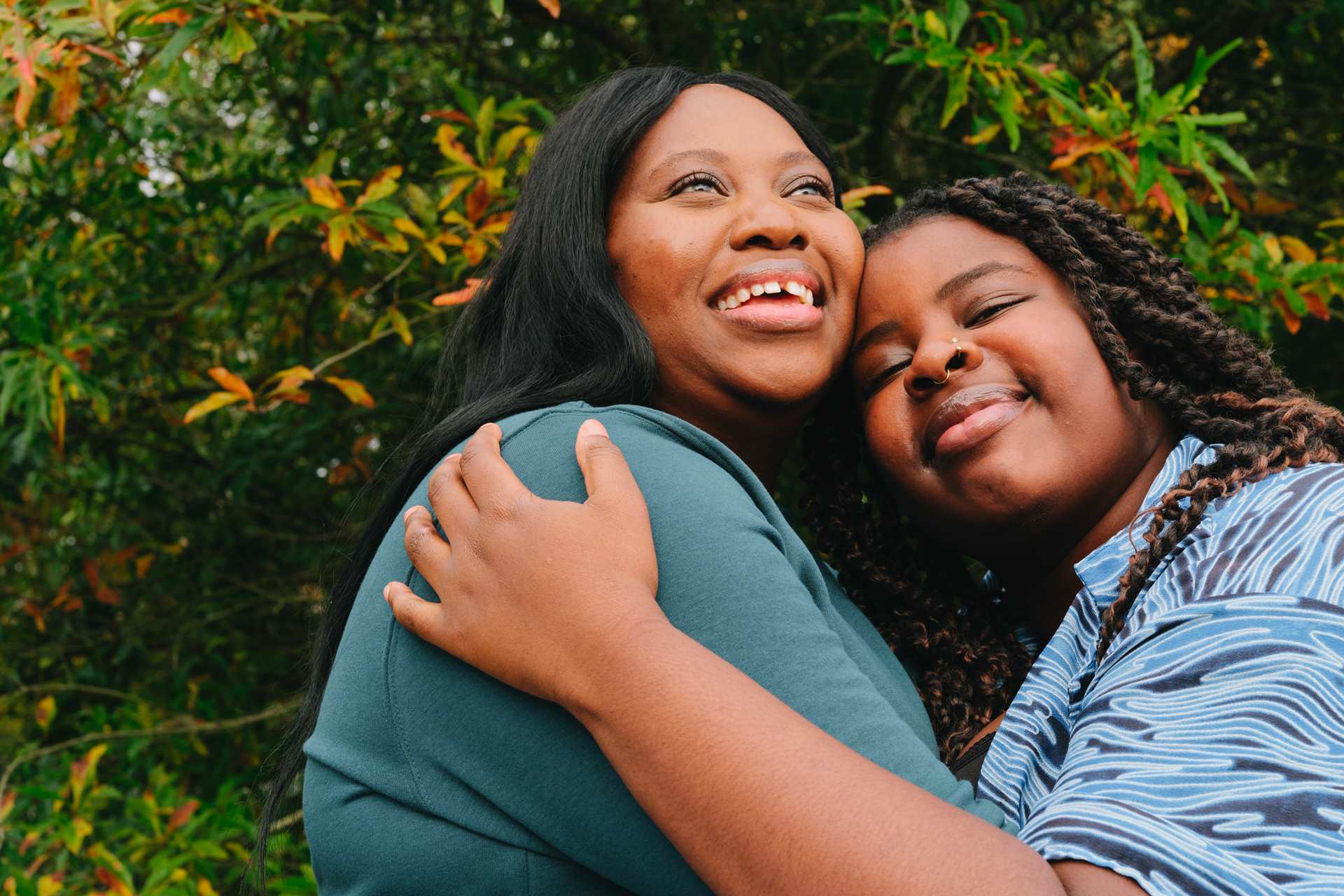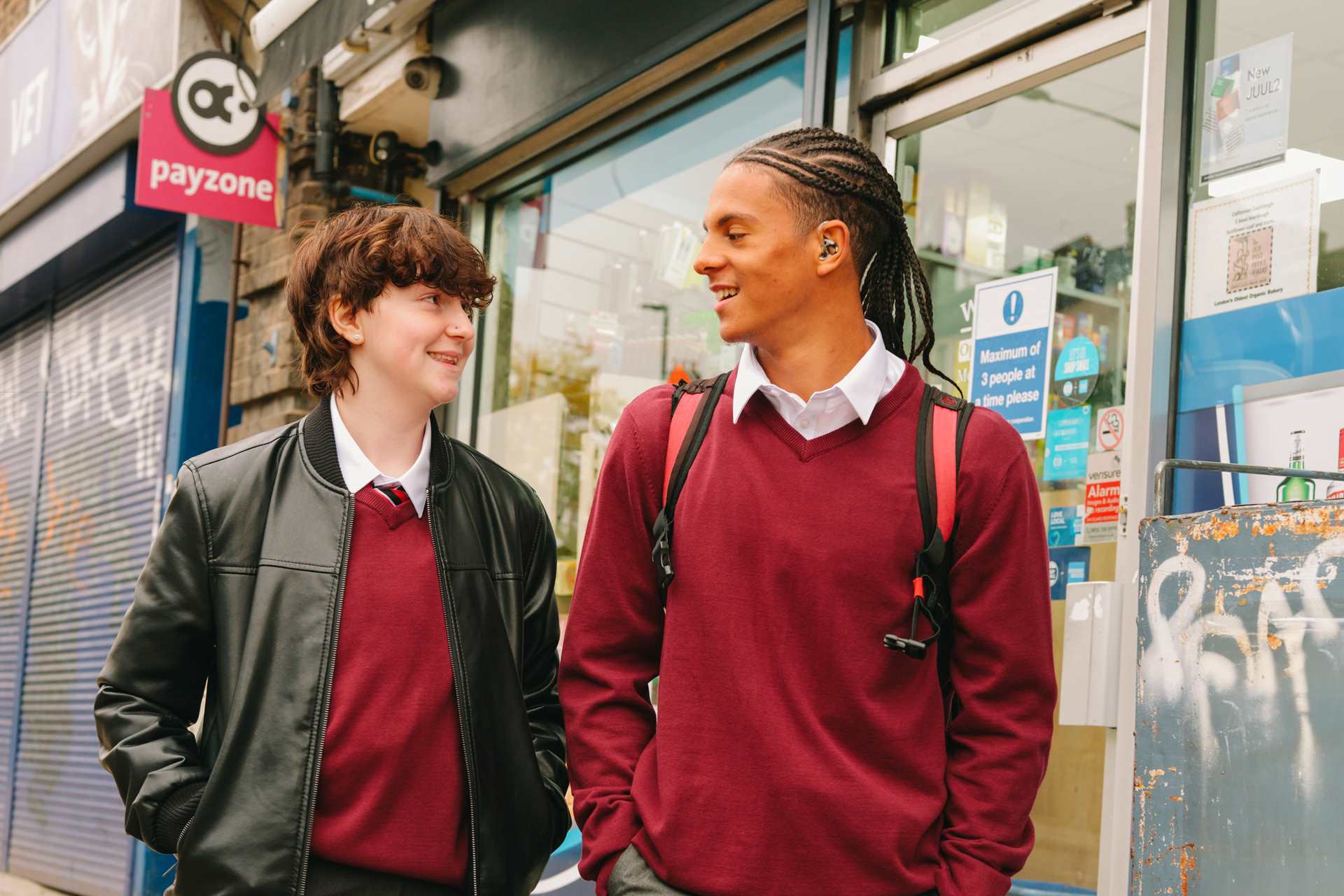Topics mentioned: disability and mental health
About: Claire reflects on Disability pride, the complicated feelings she has around this, and how she's learnt to take pride in her own skills and abilities.
Disability Pride Month took place earlier in July this year. As a young wheelchair user, I have mixed feelings about this, I am not proud of my body as such, it has very obvious limitations. My own sense of identity as a Disabled person changes on a daily basis, dependent on many factors including how my body feels and the relationships I have with the people who support me. If this resonates with you be kind to yourself, however you are feeling.
Despite not always being proud of my body itself, I have learnt to take pride in the skills, qualities and experiences I have as a Disabled person. This has not been easy, and I think it’s important to acknowledge that pride is not necessarily attainable or even desirable for all Disabled people, sometimes reaching a stage of acceptance is enough. However, I wanted to use Disability Pride Month as a chance to reflect on what I am proud of.
My own sense of identity as a Disabled person changes on a daily basis, dependent on many factors including how my body feels and the relationships I have with the people who support me.
Pride can be defined as ‘a feeling of satisfaction or deep pleasure from one’s own achievements or qualities.’ You can still be proud of who you are and equally recognise that being Disabled is hard. Pride is not something I would have associated with being Disabled, especially until adulthood. I have only become aware of the significance of July as Disability Pride Month in recent years, largely thanks to disabled advocates on social media and my growing interest in the history of the community. Having scrolled through posts about what Pride can mean for Disabled people, I have come to realise that it is complicated and there are some aspects of being Disabled that I really value. These include: developing my planning and problem-solving skills to deal with inevitable inaccessibility, relying on and trusting others to support me and being part of a Disabled community.
My planning and problem-solving skills stem from encountering literal obstacles when I go out somewhere new and, while this is frustrating, there is huge value in always thinking ahead. I cannot go out spontaneously; most outings I am thinking about potential barriers to my accessibility. This is not something I would choose to do. However it has made me very aware of other people’s access needs. Being aware of other people's needs is a hugely valuable quality in everyday life and something that I wouldn’t have considered as much if I wasn’t Disabled.
Adaptations for everyday tasks and activities are enabling. Think head or switch controls for your powerchair, asking Alexa to switch the bedroom lamp or kettle on, or creating artwork with Eye Gaze technology – these are tools for participation that I would otherwise be unaware of if it wasn’t for my disability. I think being Disabled automatically makes me think that there are alternative ways of doing things. Translating thoughts into action may take longer but that doesn’t make our opinions and voices any less meaningful.
Another aspect of being disabled that I have come to appreciate is relying on others for all of my needs. This can be quite daunting (and definitely was for me and sometimes still is at times) but having other people help me other than my family has given me freedom and autonomy that I wouldn’t otherwise have. It’s also allowed me to build trusting relationships with other people which has been really helpful for my confidence and sense of self. Now I know that it can be quite hard to see the positives in being dependent on others, but ultimately, I think it’s a useful experience. No one can do everything on their own, it’s okay and quite brave to ask for help.
Being a member of online groups for Disabled people is helpful for me, chatting to others whose bodies move in a similar way to mine and whose experiences are very familiar fosters a sense of belonging that is much needed. Accessing community spaces connected by disability, neurotype or shared interests can be really beneficial for mental health.
I hope this blog has helped you reflect on what Pride can mean for Disabled people and more importantly what it might mean for you.
Having other people help me other than my family has given me freedom and autonomy that I wouldn’t otherwise have.
To finish, I wanted to share a poem I wrote for Disability Pride Month, it explores some wider feelings about Pride, access and community.
What is Pride if not intersectional?
June has past, a time for LGBTQIA+ communities to make memorable,
July is next, but no one expects us to be proud of being disabled
Our identities are more than just a collection of labels,
They inform our past, our present and a future that we can dream of
30 years ago our future was fought for,
By disability rights activists who turned thoughts into action,
Highlighting our right to access buses, trains and nightclubs.
This was pivotal at the time and has implications to this day.
Access is so much than entrances and clear pathways,
It is an opportunity, an invitation, and not forced participation,
But a conscious decision to include us,
An affirmation that we are truly seen,
Not as an anomaly, instead a true reflection of human diversity.
Some of us may be proud of our bodies and our wheelchair use,
Some of us may not feel proud and that’s okay too.
You still deserve to be seen,
And acknowledged for the value that every single human being brings.
It is personal.
Where to get help
However you're feeling, there are people who can help you if you are struggling. Here are some services that can support you.
-
Scope
Provides practical information and emotional support for Disabled people.
- Opening times:
- 9am - 6pm, Monday - Friday; 10am - 6pm, weekends
-
Limbless Association
Offers information, advice and support for amputees, their family and friends and professionals.
- Opening times:
- 9am - 5pm, Monday - Friday
-
RNIB
Offers support to blind and partially sighted people.
- Opening times:
- 8am - 8pm, weekdays; 9am - 1pm, Saturdays
-
National Deaf Children's Society (NDCS)Offer
Supports Deaf children, their families and professionals working with them.
Offers a SignVideo service for BSL users through their helpline.
- Opening times:
- 9am - 5pm, Monday - Thursday; 9am - 12:30pm, Fridays
-
Asthma + Lung UK
Supports people living with lung conditions and campaigns for clean air.
- Opening times:
- 9:15am - 5pm, Monday - Friday
-
Samaritans
Whatever you're going through, you can contact the Samaritans for support. N.B. This is a listening service and does not offer advice or intervention.
- Opening times:
- 24/7
More information and advice
We have tips and advice to help you find the support you need. Take a look at our guides.
